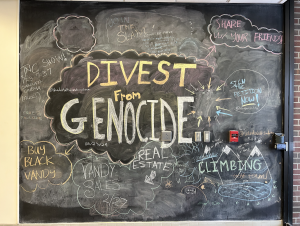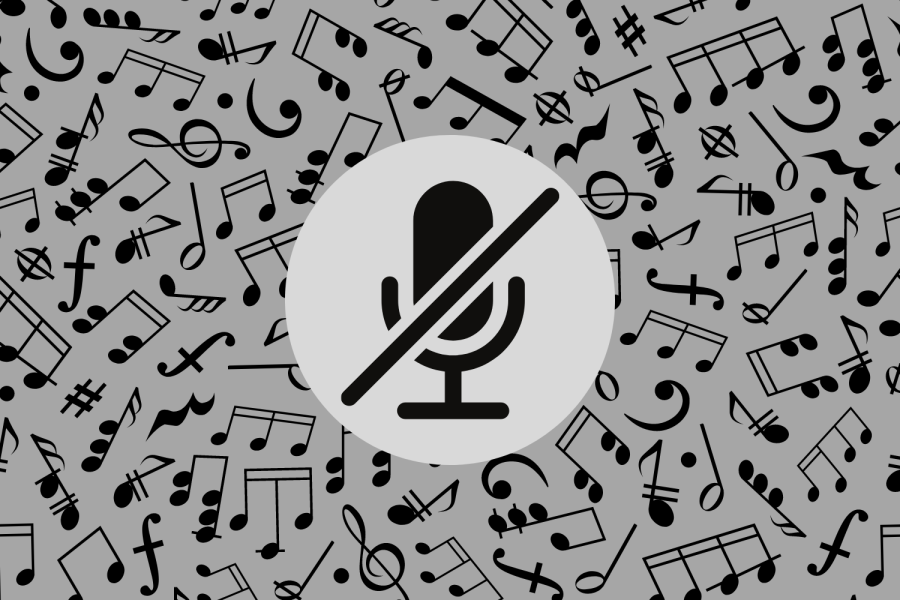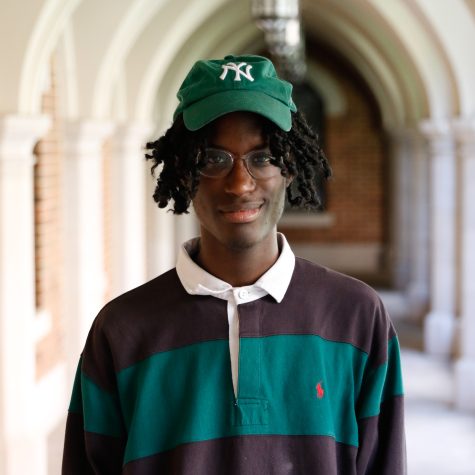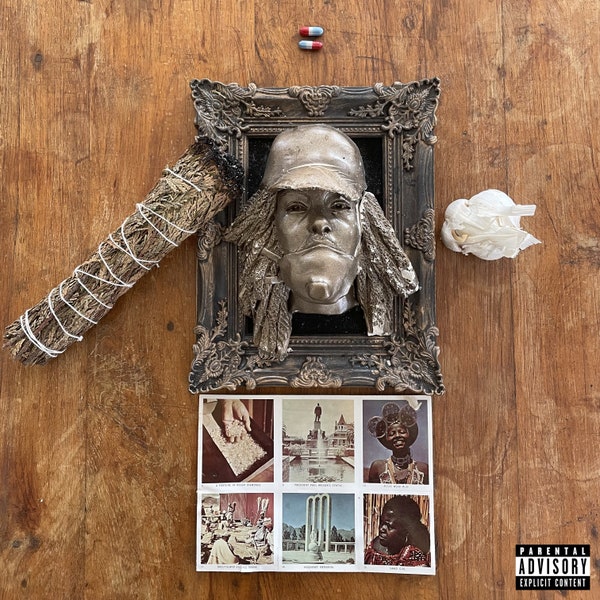When, in 2010, Earl Sweatshirt—then one of several scrawny LA teenagers comprising the upstart Odd Future hip-hop collective—was shipped off by his mother to a Samoan boarding school for at-risk teens, it sparked a lasting mini-revolution within the folds of his close rap peers and the millions of adolescents that were hooked to their influence. In posse cuts like “Forest Green,” Odd Future members made increasingly brash grievances with Earl’s situation known: “Haha, uhh, bitch,” Mike G ad-libbed to Earl’s mother in that track’s waning moments, synths still blaring behind him. “Oh, and free Earl, motherfucker.” “Free Earl,” like many early Odd Future gimmicks, became a mantra for disillusioned teens who—even if they didn’t know its context—took pride in rallying behind a cause for youthful backbone; it was a clarion call for kids who were simultaneously turning old enough to say no to their parents, and realizing that they had the audacity to actually do so. Earl Sweatshirt made a name in hip-hop circles as a captive rap phenom, while his mother made a name in hip-hop circles as a wicked dream-killer.
Meanwhile in Samoa, the vulgar, rape-joke-making, in-your-face Earl Sweatshirt was changing. “There’s not a time I want to listen to that,” he told the New York Times of “Earl,” the song that initially put him on the map, upon coming back home. (Per the Times, the song’s accompanying project was advertised on Odd Future’s Tumblr page with the following promise: “Lyrics About Rape, Coke, And Couches Will Be Blaring In Your Ears.” Earl referred to the track’s nature as sounding “like you skinned your knee”). One decade after his 2012 return to the U.S., Earl Sweatshirt now exists in hip-hop as a beacon of precocious wisdom, a mature figure who, despite his lofty position in rap’s contentious pantheon, is only ever involved in beef if he’s joking about it on Twitter. As seemingly inconvenient as it was—he was shipped away almost immediately after releasing his debut mixtape—Samoan boarding school was an unlikely-yet-vital bisector in Earl Sweatshirt’s journey up the rap ladder: it separated the child from the adult, the punchline from the reality, the young firecracker from the old soul. “All of this shit is to show that right now in time, [people] need to do this for real,” he told Rolling Stone last month. “An aesthetic is an aesthetic until that shit is real life.”
Today, as the digital age makes maturing in the spotlight increasingly complex, many rappers are finding themselves at points where the Samoa boarding school effect is not only possible, but necessary. You cannot ship every upstart MC overseas for a maturity speed run, nor can you take every year’s XXL freshman class directly from their ceremonial cypher and onto a plane to Africa—but while for many, such autonomy is a boon, the learn-it-as-you-go-along approach that present-day stardom demands is making the lessons of an already-rough industry even more unforgiving. Aging in music entails an ever-present balancing act of, all at once, evolving with the times, and being savvy enough not to evolve beyond yourself. In the case of someone like Earl Sweatshirt, a sudden hiatus-by-force in another continent is oddly an easy way out—rather than risk having fans fall out of love over a few awkward years, you re-enter the mix a new man, and any and all reckoning must be done immediately. Yet, for rappers young and old that must do their growing up entirely underneath the spotlight, the challenge becomes one of humility. Are you willing to change course mid-career? And, if not, are you willing to crash and burn for the sake of a consistent image?
In early 2019, for instance, an 18 year-old Lil Pump was at the height of his brand, and “Harverd Dropout”—a hotly-anticipated follow-up to the album that produced his landmark hit single “Gucci Gang”—was poised to cement his unlikely legend. “Gucci Gang,” if anything, was an unofficial anthem to the strain of airy, anti-everything swag-rap its mastermind championed. The track’s music video, illegally filmed in a Catholic elementary school, featured a trained tiger, lean-distributing grandmas and larger-than-life marijuana bags toted by clout-goggled high schoolers. “My lean costs more than your rent,” he rapped, camera oscillating between partying teens, blunt smoke and designer pieces. “Your mom still lives in a tent. Still slangin’ dope in the ‘jects, huh? Me and my grandma take meds.” “Gucci Gang” marked the triumphant return of the middle school lunchroom table to contemporary sonic culture, ceilings of practicality slowly disintegrating in the stench of codeine—rap no longer had to be realistic; it just had to be fun. Critics hated it. The youth loved it. And for the most part, the youth were in charge.
When Pump was profiled by Buzzfeed’s Scaachi Koul the following February, even though his interviewer was right down the stairs, the rapper was suspiciously tardy. “He’s hours late for our interview, hiding on the second floor,” Koul wrote, “and when I check his Instagram I find he’s broadcasting live from the bathroom while our photographers and I wait for him to come back downstairs.” This behavior wasn’t a one-time thing. When Vulture spoke to him around that same period, senior editor Dee Lockett reported that he “drifted off to sleep somewhere between anointing himself ‘the best SoundCloud rapper’ and claiming Taylor Swift would feature on his mixtape.” (“The Pump I met that day felt as artificial as his social-media feed, where he presents as a walking literalization of all of rap’s gaudiest traditions,” Lockett would go on to write.) When he was interviewed by Zane Lowe, too, Lowe couldn’t help but tell him to “shut the fuck up.” As much of a pain as it was to journalists, Pump’s approach to the industry was the very crux of what inspiring gospel rap’s newest chapter set out to preach: while the racks were on their way in, the cares were on their way out.
But times have changed—and for Lil Pump, who told Lockett that his goal was to be “the most ignorant, richest rapper,” it was this very ignorance that sealed his fate. There is no single event I, nor anyone, can single out as the ushering in of the tomorrow and the ousting of Pump’s heyday: it just so happened that one day, clout goggles stopped being fashionable. Lean stopped being rap’s favorite drug. Distressed skinny jeans and bomber jackets gave way to Gucci Bottoms and Dior tops. And all throughout, as culture was evolving and his peers were growing up, Lil Pump was in his mansion, livestreaming from his bathroom, the intrigued journalist and accompanying camera crew long gone on to the next big thing.
The last trace of Lil Pump’s stint in the public eye came on Election Day two years ago, live from the pulpit of a rally held by then-President Donald Trump. Upon being mistakenly introduced by Trump as “one of the big superstars of the world: Little Pimp,” he walked on-screen to somewhat muted applause, clutching the microphone with a cheshire grin. “MAGA Twenty Twenty Twenty,” he said awkwardly, seeming to forget his lines with every additional word. It was glaringly obvious that because music was no longer working as well as it used to, he had figured that politics could rejuvenate his cultural value. “Don’t forget that! And do not vote for Sleepy Joe, at all!” The crowd erupted, and at the same time that he walked off the stage of the rally, he symbolically walked off the boundaries of rap culture’s apparent tolerance.
It isn’t that growing up is impossible in hip-hop. This past year, a 48 year-old Nas beat out the likes of Freddie Gibbs and Jay Electronica for his first “Best Rap Album” Grammy—thirteen LPs and two decades after he himself started as a lanky teenager in New York’s Queensbridge Housing Projects. Chief Keef, once an outspoken Chicago high-schooler who made the news with public brawls, rival gang murders and relentless anarchy, just earned the highest Pitchfork rating of his career for his latest LP “4NEM.” (“Almost three years since his last solo project,” Pitchfork’s Alphonse Pierre wrote, “the 26-year-old rapper continues to reimagine and reinterpret his influences, which is part of what makes his new music feel so alive.) The once-raucous Odd Future collective from which Earl Sweatshirt emerged, even, peacefully disbanded in 2015, after which every last core member has gone on to lead a mature career of their own.
The catch is that as growing up becomes increasingly difficult as the Internet evolves, it also becomes increasingly necessary. As, every year, the world seems to be faced with challenges that somehow outdo the last batch, the sedative of music becomes evermore vital—and while humanity’s attention span shortens, so does its tolerance for anything lacking substance.
The cards are stacked—and if today’s rappers want to live beyond their time, they must first live beyond their youthful egos.















